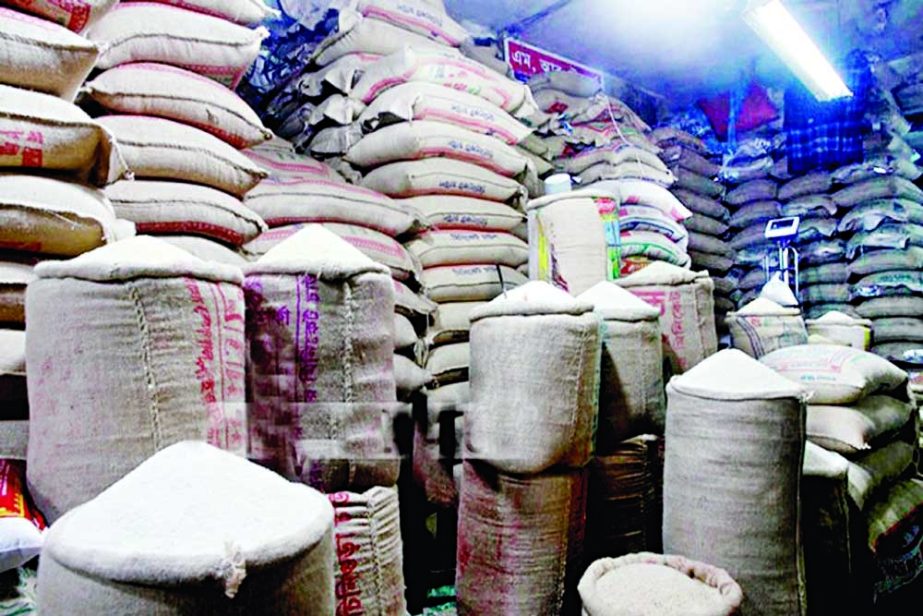
Staff Reporter :
Rice prices continue to soar in the local market putting more pressure on the lower-income group of people who have already been bearing the brunt of rising prices of essentials.
The price of rice has already increased by Tk 300 per 50 kg sack this week, according to traders.
Rice wholesalers say the government has stopped importing rice for two months to help the local rice growers get fair price. Sadly he greedy wholesalers have taken advantage of this opportunity and he price thereby increased.
Previously imported rice is now being sold at higher prices despite plenty of production and stockpiles. The importers have increased the price of 50 kg sack of imported rice by Tk 300 in a week.
Bangladesh Auto-Major and Husking Mill Owners’ Association General Secretary KM Layeak Ali said although paddy and rice came in the market in the new season, the quantity was not sufficient
Rise of prices of imported Indian rice have affected the local market. In addition, the rise of prices of consumer goods, including fuel oil, has affected the rice market, he added.
The government allowed importers to import rice latest on August 25 this year. At that time 400 importers were allowed to import 1.6 million tons of rice. They were asked to complete the work by October 30. But the import of rice from India was stopped from October 31 at the directive of the Ministry of Food. Traders, however, said that a lot of rice were imported before the import was stopped.
Department of Agricultural Extension, Chattogram’s Deputy Director Aktaruzzaman said at least 1,088 hectares of land in Chittagong district were damaged due to Cyclonic storm “Jawad”. Among them were Ropa and Aman. The sum of damage might be relatively higher in other parts of the country. This has affected the rice market.
Omar Azam, General Secretary of the Chaktai Rice Traders’ Association, said the supply of Indian rice was naturally low due to the suspension of rice imports from India. The greedy importers had exploited the stoppage.
Shanta Dasgupta, a wholesale trader in Chaktai rice market, said prices are expected to come down after the arrival of local Aman rice. But the government has fixed extra price for rice to procure paddy. In the case of farmers, the price has been increased by one taka per kg but the collection of rice from mill owners has been increased by three taka per kg.
Shanta said as a result, the supply of rice to the farmers in the open market has decreased and the prices have increased at the wholesale and retail level. Representatives of rice traders from Ashuganj, Habiganj, Kushtia, Netrokona and Mymensingh observed the markets of the country and informed the warehouse keepers. They understand the situation and increase the price and syndicated created an artificial crisis.
The government has already started paddy and rice procurement ahead of the Aman season. A circular signed by Food Ministry Secretary on November 8 set the target for paddy procurement in accordance with the internal food procurement policy.
Following this, the procurement price of Aman paddy was fixed at Tk 27 per kg and rice at Tk 40 through an agreement with millers. At this, the government has set a target of procuring three lakh tonnes of paddy and five lakh tonnes of boiled rice. This program will continue till 28th February.
Aman rice has already arrived in the market. Whereas the price of rice should have come down, it has gone up. As a result, the citizens have to buy rice at higher prices. For this, the wholesale traders are blaming the manipulation of the syndicate, reducing the supply to the Mokam owners and increasing the price of oil.

